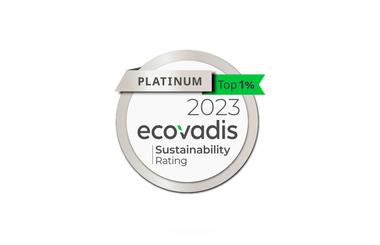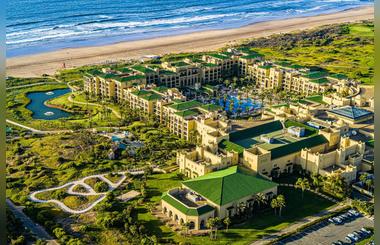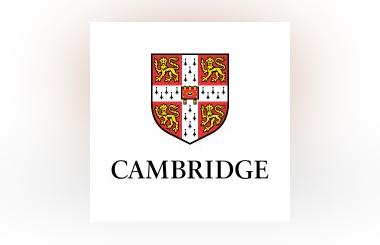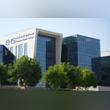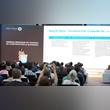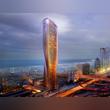
- ID Number 24540
- Aug 08, 2023
- 202
Experts underline role of Islamic finance in driving global economic stability at 10th World Islamic Economic Forum in Dubai
The 10th World Islamic Economic Forum (WIEF), co-organised by Dubai Chamber of Commerce & Industry and WIEF Foundation, underlined the role of Islamic finance in driving global economic stability with experts calling for parity between Islamic and conventional finance and highlighting the role that Sukuks play in fostering the growth of infrastructure development in emerging economies across the world.
A dialogue on Sukuk Development and Financial Stability had experts representing developed and emerging nations, as well as representatives of international financial organisations underscoring the defining role that Islamic finance will play in the future, with the global market for Sukuks set to record year-on-year growth.
Welcoming delegates from across the world to the Forum, HE Hamad Buamim, President & CEO of Dubai Chamber, said that the event will further define Dubai as the global capital of the Islamic economy, and presents a new opportunity for the world to leverage the potential for growth offered by Islamic finance.
He said: This prestigious Forum, celebrating its special 10th anniversary, is an important occasion for Dubai as we seek to build strength and prosperity of the global Islamic economy. We are honoured to have the patronage of His Highness Sheikh Mohammed bin Rashid Al Maktoum, UAE Vice President and Prime Minister and Ruler of Dubai. Dubais Capital of Islamic Economy vision, based on key pillars, including Islamic finance, halal lifestyle, family-friendly tourism and Islamic standards and certification, is one that can hold the key to the future growth of the global economy.
HE Buamim said that the theme of this years Forum, Innovative Partnerships for Economic Growth, is an essential character of Dubai. Our citys development was shaped, and continues to be shaped, by the active participation of people from all around the world. Home to over 200 nationalities who work together in peace and harmony, Dubai is today recognised as a major business and finance hub as well as a global tourism, trade and logistics centre.
HE Essa Kazim, Governor of Dubai International Financial Centre, Secretary General of the Board of Dubai Islamic Development Centre and Chairman of Dubai Financial Market, said that fueled by the booming industries in the GCC region and Southeast Asia, the Islamic finance industry is booming and will double over the next five years to over US$3.4 trillion.
Islamic finance is a key pillar of Dubais Capital of Islamic Economy vision, and an area of expertise in Dubais finance sector. With the establishment of the Dubai Islamic Economy Development Centre in 2013, we have begun witnessing growth across the various sectors that represent Dubais strategy for an Islamic economy, he added. We are confident that new Islamic and non-Islamic sovereign issuers will continue to enter the market, as the call for an Islamic economy gains resonance.
HE Kazim said Dubai is today the third global centre for Sukuk following the recent listing of US$750 million (AED2.8 billion) sukuk by the Government of Dubai, as well as plans by Hong Kong to list its first successful offering of US$1 billion (AED3.68 billion) Sukuk on Nasdaq Dubai. The sukuk market is likely to sustain double-digit growth in the next three years with assets in Islamic finance expected to reach US$2.8 trillion by 2015, he added.
In her special address Hon. Dr. Zeti Akhtar Aziz, Governor of the Central Bank of Malaysia, said that the global Sukuk market is evolving as a distinct platform to foster greater international linkages, and gaining interest from multilateral institutions and multinational corporations in addition to gaining greater geographic reach.
Dr. Aziz said that with domicile in over 20 countries and in multiple currencies, the Sukuk market offers a strong opportunity to drive infrastructure development. While Asia requires over US$8.3 trillion through 2020 to meet infrastructure needs, the Middle East requires over US$2 trillion in the same period. Additionally, African markets are also tapping the Sukuk market.
She added that the international linkages formed through Sukuks supporting infrastructure and growth projects will contribute to global financial stability that will be mutually beneficial for all stakeholders.
HE Kairat Kelimbetov, Governor of the National Bank of Kazakhstan shared the experience of the country in furthering the growth of Islamic finance. He said that Kazakhstan serves as the gateway to Islamic securities in the CIS region, and underlined the strong regulatory measures being adopted by the Government to promote Islamic finance. He also highlighted the importance of linking Islamic finance to project financing for promoting durable financial stability.
Rt.Hon. Andrea Leadsom MP, Economic Secretary to the Treasury of the United Kingdom, said the country has taken concerted measures to further engage with fast-growing economies in Islamic finance. She said that the Bank of England has commenced feasibility work for establishing Shariah compliant facilities.
Rt. Hon. Leadsom said that initiating an Islamic Index on London Stock Exchange, developing UKs expertise in Islamic insurance and encouraging Islamic finance in infrastructure projects highlight the UKs role and keenness to be a key participant in the world Islamic economy.
On the dialogue on Sukuk Development and Financial Stability, moderated by Mushtak Parker, Editor of Islamic Banker magazine, the focus was firmly on the role that Islamic finance can play in promoting project finance, thus contributing to greater economic stability.
Masood Ahmed, Director, Middle East and Central Asia Department of the International Monetary Fund, said Sukuk issuances can help deal with the infrastructure deficit in the region, particularly the oil-importing nations with little recourse to funding. He said that oil-exporting nations, despite the falling prices, maintain high levels of cash surplus that depress profits and increase systemic risks, reiterating the need to foster linkages between Islamic finance and the macro-economy.
Dr. Abdul Aziz Al Hinai, Vice President Finance of Islamic Development Bank, highlighted the challenges and opportunities in Islamic finance, reminding the audience that Sukuks are not to be perceived as debt, particularly given its linkages to projects.
The first session at the Forum concluded on a note of optimism on the growth potential of Sukuks and the path-breaking role that Dubai plays as the hub of the world Islamic economy.
For more information, visit the 10th WIEF website: www.10thwief.org

Making History: ASPIRE to Launch Inaugural ‘Abu Dh...
- Apr 23, 2024

ENOC Group partners with Loyyal to enhance ‘YES’ r...
- Apr 23, 2024
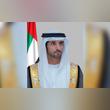
Septuagenarian Visitor's Life Saved at Kuwait Hosp...
- Apr 23, 2024

